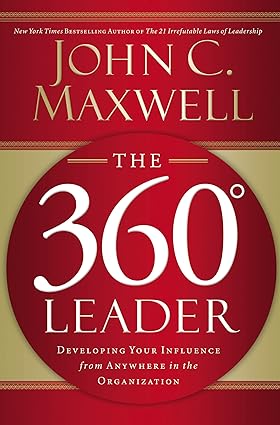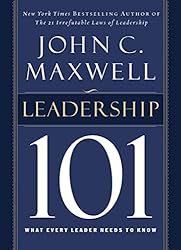as he clasped his uncle’s toil worn hand. “And Aunt Nancy, too!
It pays me for coming all the way from Montana just to see you.”
“I’m glad to see you, Jefferson,” said his uncle. “It seems a
long time since you went away. I hope you’ve prospered.”
“Well, uncle, I’ve brought myself back well and hearty, and I’ve
got a few hundred dollars.”
“I’m glad to hear it, Jefferson. You’re better off than when
you went away.”
“Yes, uncle. I couldn’t be much worse off. Then I hadn’t a
cent that I could call my own. But how are you and Aunt Nancy?”
“We’re gettin’ old, Jefferson, and misfortune has come to us.
Squire Sheldon has got a mortgage on the farm and it’s likely
we’ll be turned out. You’ve come just in time to see it.”
“Is it so bad as that, Uncle Cyrus? Why, when I went away you
were prosperous.”
“Yes, Jefferson, I owned the farm clear, and I had money in the
bank, but now the money’s gone and there’s a twelve hundred
dollar mortgage on the old place,” and the old man sighed.
“But how did it come about uncle? You and Aunt Nancy haven’t
lived extravagantly, have you? Aunt Nancy, you haven’t run up
a big bill at the milliner’s and dressmaker’s?”
“You was always for jokin’, Jefferson,” said the old lady,
smiling faintly; “but that is not the way our losses came.”
“How then?”
“You see I indorsed notes for Sam Sherman over at Canton, and he
failed, and I had to pay. then I bought some wild cat minin’
stock on Sam’s recommendation, and that went down to nothin’.
So between the two I lost about three thousand dollars.
I’ve been a fool, Jefferson, and it would have been money in my
pocket if I’d had a guardeen.”
“So you mortgaged the place to Squire Sheldon, uncle?”
“Yes; I had to. I was obliged to meet my notes.”
“But surely the squire will extend the mortgage.”
“No, he won’t. I’ve asked him. He says he must call in the
money, and so the old place will have to be sold, and Nancy and
I must turn out in our old age.”
Again the old man sighed, and tears came into Nancy Hooper’s eyes.
“There’ll be something left, won’t there, Uncle Cyrus?”
“Yes, the place should bring six hundred dollars over and above
the mortgage. That’s little enough, for it’s worth three thousand.”
“So it is, Uncle Cyrus. But what can you do with six
hundred dollars? It won’t support you and Aunt Nancy?”
“I thought mebbe, Jefferson, I could hire a small house and you
could board with us, so that we could still have a home together.”
“I’ll think it over, uncle, if there is no other way. But are
you sure Squire Sheldon won’t give you more time?”
“No, Jefferson. I surmise he wants the place himself.
There’s talk of a railroad from Sherborn, and that’ll raise
the price of land right around here. It’ll probably go right
through the farm just south of the three acre lot.”
“I see, Uncle Cyrus. You ought to have the benefit of the rise
in value.”
“Yes, Jefferson, it would probably rise enough to pay off the
mortgage, but its no use thinkin’ of it. The old farm has got
to go.”
“I don’t know about that, Uncle Cyrus.”
“Why, Jefferson, you haven’t money enough to lift the mortgage!”
said the old man, with faint hope.
“If I haven’t I may get it for you. Tell me just how much money
is required.”
“Thirteen hundred dollars, includin’ interest.”
“Perhaps you have heard that I have a boy with me- a boy from
New York, named Rodney Ropes. He has money, and perhaps I might
get him to advance the sum you want.”
“Oh, Jefferson, if you only could!” exclaimed Aunt Nancy,
clasping her thin hands. “It would make us very happy.”
“I’ll see Rodney tonight and come over tomorrow morning and tell
you what he says. On account of the railroad I shall tell him
that it is a good investment. I suppose you will be willing to
mortgage the farm to him for the same money that he pays to lift
the present mortgage?”
“Yes, Jefferson, I’ll be willin’ and glad. It’ll lift a great
burden from my shoulders. I’ve been worryin’ at the sorrow I’ve
brought upon poor Nancy, for she had nothing to do with my
foolish actions. I was old enough to know better, Jefferson,
and I’m ashamed of what I did.”
“Well, Uncle Cyrus, I’ll do what I can for you. Now let us
forget all about your troubles and talk over the village news.
You know I’ve been away for four years, and I haven’t had any
stiddy correspondence, so a good deal must have happened that I
don’t know anything about. I hear Frank Dobson has prospered?”
“Yes, Frank’s pretty forehanded. He’s got a good economical
wife, and they’ve laid away five or six hundred dollars in the
savings bank.”
“I am glad of it. Frank is a good fellow. If it hadn’t been
for him I couldn’t have gone to Montana. When he lent me the
money everybody said he’d lose it, but I was bound to pay it if
I had to live on one meal a day. He was the only man in town
who believed in me at that time.”
“You was a littless shif’less, Jefferson. You can’t blame people.
I wasn’t quite sure myself how you’d get along.”
“No doubt you are right, Uncle Cyrus. It did me good to
leave town. I didn’t drink, but I had no ambition. When a
man goes to a new country it’s apt to make a new man of him.
That was the case with me.”
“Are you goin’ back again, Jefferson?”
“Yes, uncle. I’m going to stay round here long enough to fix up
your affairs and get you out of your trouble. Then I’ll go back
to the West. I have a little mining interest there and I can
make more money there than I can here.”
“If you can get me out of my trouble, Jefferson, I’ll never
forget it. Nancy and I have been so worried that we couldn’t
sleep nights, but now I’m beginnin’ to be a little more cheerful.”
Jefferson Pettigrew spent another hour at his uncle’s house, and
then went back to the tavern, where he found Rodney waiting for him.
He explained briefly the part he wished his boy friend to
take in his plan for relieving his uncle.
“I shall be receiving credit to which I am not entitled,” said
Rodney. “Still, if it will oblige you I am willing to play the
part of the boy capitalist.”
The next morning after breakfast the two friends walked over to
the house of Cyrus Hooper. Aunt Nancy came to the door and gave
them a cordial welcome.
“Cyrus is over at the barn, Jefferson,” she said. “I’ll ring
the bell and he’ll come in.”
“No, Aunt Nancy, I’ll go out and let him know I am here.”
Presently Cyrus Hooper came in, accompanied by Jefferson.
“Uncle Cyrus,” said the miner, “let me introduce you to my
friend Rodney Ropes, of New York.”
“I’m glad to see you,” said Cyrus heartily. “I’m glad to see
any friend of Jefferson’s,”
“Thank you, sir. I am pleased to meet you.”
“Jefferson says you are goin’ to Montany with him.”
“I hope to do so. I am sure I shall enjoy myself in his company.”
“How far is Montany, Jefferson?”
“It is over two thousand miles away, Uncle Cyrus.”
“It must be almost at the end of the world. I don’t see how you
can feel at home so far away from Vermont.”
Jefferson smiled.
“I can content myself wherever I can make a good living,”
he said. “Wouldn’t you like to go out and make me a visit?”
“No, Jefferson, I should feel that it was temptin’ Providence to
go so far at my age.”
“You never were very far from Burton, Uncle Cyrus?”
“I went to Montpelier once,” answered the old man with evident pride.
“It is a nice sizable place. I stopped at the tavern, and had a
good time.”
It was the only journey the old man had ever made, and he would
never forget it.
“Uncle Cyrus,” said Jefferson, “this is the young man who I
thought might advance you money on a new mortgage. Suppose we
invite him to go over the farm, and take a look at it so as to
see what he thinks of the investment.”
“Sartain, Jefferson, sartain! I do hope Mr. Ropes you’ll look
favorable on the investment. It is Jefferson’s idea, but it
would be doin’ me a great favor.”
“Mr. Pettigrew will explain the advantages of the farm as we go
along,” said Rodney.
So they walked from field to field, Jefferson expatiating to his
young friend upon the merits of the investment, Rodney asking
questions now and then to carry out his part of the shrewd and
careful boy capitalist.
When they had made a tour of the farm Jefferson said: “Well,
Rodney, what do you think of the investment?”
“I am satisfied with it,” answered Rodney. “Mr. Hooper, I will
advance you the money on the conditions mentioned by my friend,
Mr. Pettigrew.”
Tears of joy came into the eyes of Cyrus Hooper and his worn face
showed relief.
“I am very grateful, young man,” he said. “I will see that you
don’t regret your kindness.”
“When will Squire Sheldon be over to settle matters, Uncle
Cyrus?” asked Jefferson.
“He is comin’ this afternoon at two o’clock.”
“Then Rodney and I will be over to take part in the business.”



















